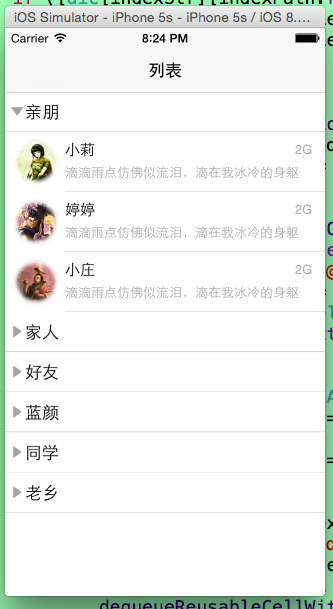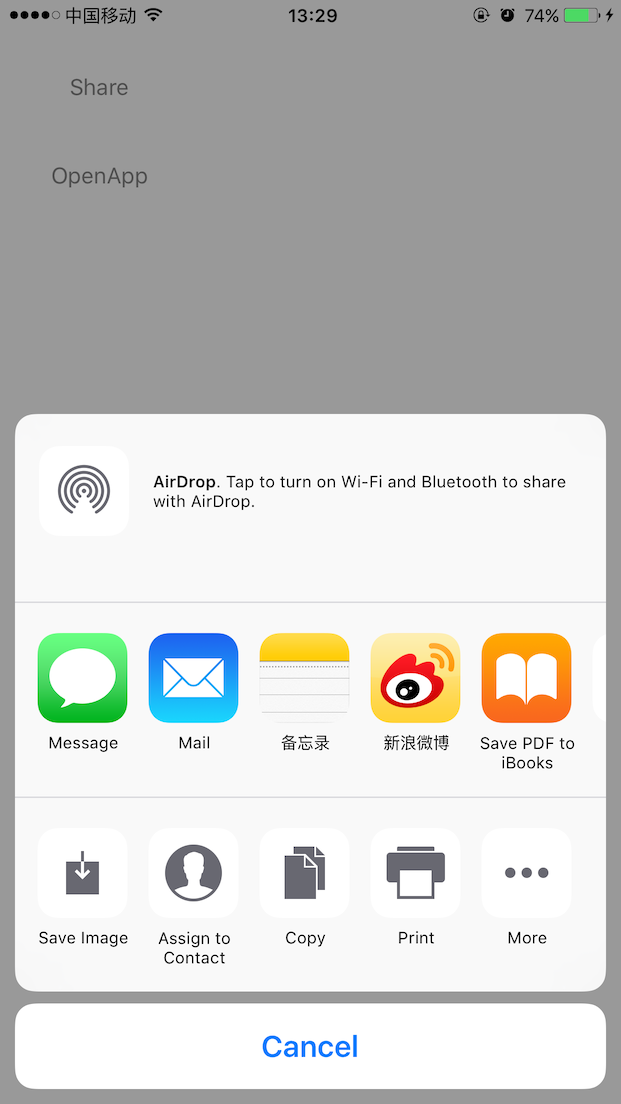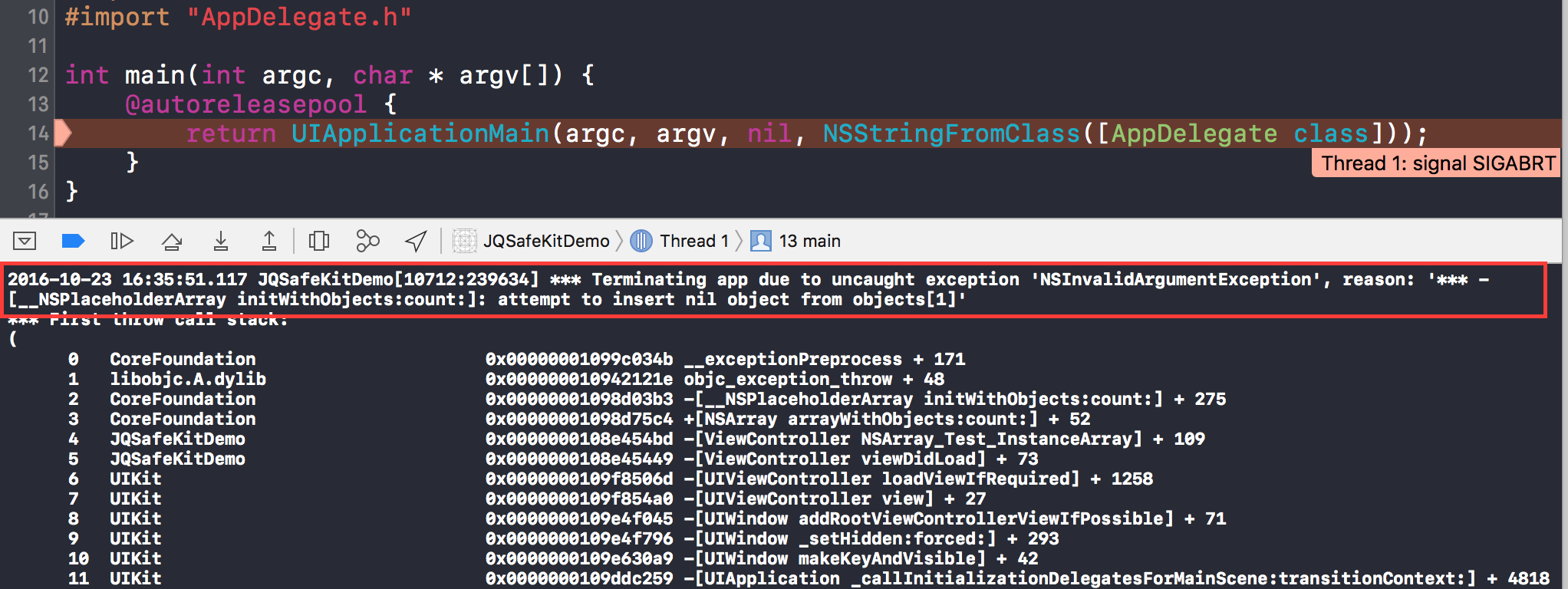舉例講解iOS中延遲加載和上拉刷新/下拉加載的實現
lazy懶加載(延遲加載)UITableView
舉個例子,當我們在用網易新聞App時,看著那麼多的新聞,並不是所有的都是我們感興趣的,有的時候我們只是很快的滑過,想要快速的略過不喜歡的內容,但是只要滑動經過了,圖片就開始加載了,這樣用戶體驗就不太好,而且浪費內存.
這個時候,我們就可以利用lazy加載技術,當界面滑動或者滑動減速的時候,都不進行圖片加載,只有當用戶不再滑動並且減速效果停止的時候,才進行加載.
剛開始我異步加載圖片利用SDWebImage來做,最後試驗的時候出現了重用bug,因為雖然SDWebImage實現了異步加載緩存,當加載完圖片後再請求會直接加載緩存中的圖片,注意注意注意,關鍵的來了,如果是lazy加載,滑動過程中是不進行網絡請求的,cell上的圖片就會發生重用,當你停下來能進行網絡請求的時候,才會變回到當前Cell應有的圖片,大概1-2秒的延遲吧(不算延遲,就是沒有進行請求,也不是沒有緩存的問題).怎麼解決呢?這個時候我們就要在Model對象中定義個一個UIImage的屬性,異步下載圖片後,用已經緩存在沙盒中的圖片路徑給它賦值,這樣,才cellForRowAtIndexPath方法中,判斷這個UIImage對象是否為空,若為空,就進行網絡請求,不為空,就直接將它賦值給cell的imageView對象,這樣就能很好的解決圖片短暫重用問題.
@下面我的代碼用的是自己寫的異步加載緩存類,SDWebImage的加載圖片的懶加載,會在後面的章節給出.(為什麼不同呢,因為SDWebImage我以前使用重來不關心它將圖片存儲在沙盒中的名字和路徑,但是要實現懶加載的話,一定要得到圖片路徑,所以在找SDWebImage如何存儲圖片路徑上花了點時間)
復制代碼 代碼如下:
@model類
#import <Foundation/Foundation.h>
@interface NewsItem : NSObject
@property (nonatomic,copy) NSString * newsTitle;
@property (nonatomic,copy) NSString * newsPicUrl;
@property (nonatomic,retain) UIImage * newsPic; // 存儲每個新聞自己的image對象
- (id)initWithDictionary:(NSDictionary *)dic;
// 處理解析
+ (NSMutableArray *)handleData:(NSData *)data;
@end
#import "NewsItem.h"
#import "ImageDownloader.h"
@implementation NewsItem
- (void)dealloc
{
self.newsTitle = nil;
self.newsPicUrl = nil;
self.newsPic = nil;
[super dealloc];
}
- (id)initWithDictionary:(NSDictionary *)dic
{
self = [super init];
if (self) {
self.newsTitle = [dic objectForKey:@"title"];
self.newsPicUrl = [dic objectForKey:@"picUrl"];
//從本地沙盒加載圖像
ImageDownloader * downloader = [[[ImageDownloader alloc] init] autorelease];
self.newsPic = [downloader loadLocalImage:_newsPicUrl];
}
return self;
}
+ (NSMutableArray *)handleData:(NSData *)data;
{
//解析數據
NSError * error = nil;
NSDictionary * dic = [NSJSONSerialization JSONObjectWithData:data options:NSJSONReadingMutableContainers error:&error];
NSMutableArray * originalArray = [dic objectForKey:@"news"];
//封裝數據對象
NSMutableArray * resultArray = [NSMutableArray array];
for (int i=0 ;i<[originalArray count]; i++) {
NSDictionary * newsDic = [originalArray objectAtIndex:i];
NewsItem * item = [[NewsItem alloc] initWithDictionary:newsDic];
[resultArray addObject:item];
[item release];
}
return resultArray;
}
@end
復制代碼 代碼如下:
@圖片下載類
#import <Foundation/Foundation.h>
@class NewsItem;
@interface ImageDownloader : NSObject
@property (nonatomic,copy) NSString * imageUrl;
@property (nonatomic,retain) NewsItem * newsItem; //下載圖像所屬的新聞
//圖像下載完成後,使用block實現回調
@property (nonatomic,copy) void (^completionHandler)(void);
//開始下載圖像
- (void)startDownloadImage:(NSString *)imageUrl;
//從本地加載圖像
- (UIImage *)loadLocalImage:(NSString *)imageUrl;
@end
#import "ImageDownloader.h"
#import "NewsItem.h"
@implementation ImageDownloader
- (void)dealloc
{
self.imageUrl = nil;
Block_release(_completionHandler);
[super dealloc];
}
#pragma mark - 異步加載
- (void)startDownloadImage:(NSString *)imageUrl
{
self.imageUrl = imageUrl;
// 先判斷本地沙盒是否已經存在圖像,存在直接獲取,不存在再下載,下載後保存
// 存在沙盒的Caches的子文件夾DownloadImages中
UIImage * image = [self loadLocalImage:imageUrl];
if (image == nil) {
// 沙盒中沒有,下載
// 異步下載,分配在程序進程缺省產生的並發隊列
dispatch_async(dispatch_get_global_queue(DISPATCH_QUEUE_PRIORITY_DEFAULT, 0), ^{
// 多線程中下載圖像
NSData * imageData = [NSData dataWithContentsOfURL:[NSURL URLWithString:imageUrl]];
// 緩存圖片
[imageData writeToFile:[self imageFilePath:imageUrl] atomically:YES];
// 回到主線程完成UI設置
dispatch_async(dispatch_get_main_queue(), ^{
//將下載的圖像,存入newsItem對象中
UIImage * image = [UIImage imageWithData:imageData];
self.newsItem.newsPic = image;
//使用block實現回調,通知圖像下載完成
if (_completionHandler) {
_completionHandler();
}
});
});
}
}
#pragma mark - 加載本地圖像
- (UIImage *)loadLocalImage:(NSString *)imageUrl
{
self.imageUrl = imageUrl;
// 獲取圖像路徑
NSString * filePath = [self imageFilePath:self.imageUrl];
UIImage * image = [UIImage imageWithContentsOfFile:filePath];
if (image != nil) {
return image;
}
return nil;
}
#pragma mark - 獲取圖像路徑
- (NSString *)imageFilePath:(NSString *)imageUrl
{
// 獲取caches文件夾路徑
NSString * cachesPath = [NSSearchPathForDirectoriesInDomains(NSCachesDirectory, NSUserDomainMask, YES) lastObject];
// 創建DownloadImages文件夾
NSString * downloadImagesPath = [cachesPath stringByAppendingPathComponent:@"DownloadImages"];
NSFileManager * fileManager = [NSFileManager defaultManager];
if (![fileManager fileExistsAtPath:downloadImagesPath]) {
[fileManager createDirectoryAtPath:downloadImagesPath withIntermediateDirectories:YES attributes:nil error:nil];
}
#pragma mark 拼接圖像文件在沙盒中的路徑,因為圖像URL有"/",要在存入前替換掉,隨意用"_"代替
NSString * imageName = [imageUrl stringByReplacingOccurrencesOfString:@"/" withString:@"_"];
NSString * imageFilePath = [downloadImagesPath stringByAppendingPathComponent:imageName];
return imageFilePath;
}
@end
復制代碼 代碼如下:
@這裡只給出關鍵代碼,網絡請求,數據處理,自定義cell自行解決
#pragma mark - Table view data source
- (NSInteger)numberOfSectionsInTableView:(UITableView *)tableView
{
// Return the number of sections.
return 1;
}
- (NSInteger)tableView:(UITableView *)tableView numberOfRowsInSection:(NSInteger)section
{
// Return the number of rows in the section.
if (_dataArray.count == 0) {
return 10;
}
return [_dataArray count];
}
- (UITableViewCell *)tableView:(UITableView *)tableView cellForRowAtIndexPath:(NSIndexPath *)indexPath
{
static NSString *cellIdentifier = @"Cell";
NewsListCell *cell = [tableView dequeueReusableCellWithIdentifier:cellIdentifier ];
if (!cell) {
cell = [[[NewsListCell alloc] initWithStyle:UITableViewCellStyleDefault reuseIdentifier:cellIdentifier] autorelease];
}
NewsItem * item = [_dataArray objectAtIndex:indexPath.row];
cell.titleLabel.text = item.newsTitle;
//判斷將要展示的新聞有無圖像
if (item.newsPic == nil) {
//沒有圖像下載
cell.picImageView.image = nil;
NSLog(@"dragging = %d,decelerating = %d",self.tableView.dragging,self.tableView.decelerating);
// ??執行的時機與次數問題
if (self.tableView.dragging == NO && self.tableView.decelerating == NO) {
[self startPicDownload:item forIndexPath:indexPath];
}
}else{
//有圖像直接展示
NSLog(@"1111");
cell.picImageView.image = item.newsPic;
}
cell.titleLabel.text = [NSString stringWithFormat:@"indexPath.row = %ld",indexPath.row];
return cell;
}
- (CGFloat)tableView:(UITableView *)tableView heightForRowAtIndexPath:(NSIndexPath *)indexPath
{
return [NewsListCell cellHeight];
}
//開始下載圖像
- (void)startPicDownload:(NewsItem *)item forIndexPath:(NSIndexPath *)indexPath
{
//創建圖像下載器
ImageDownloader * downloader = [[ImageDownloader alloc] init];
//下載器要下載哪個新聞的圖像,下載完成後,新聞保存圖像
downloader.newsItem = item;
//傳入下載完成後的回調函數
[downloader setCompletionHandler:^{
//下載完成後要執行的回調部分,block的實現
//根據indexPath獲取cell對象,並加載圖像
#pragma mark cellForRowAtIndexPath-->沒看到過
NewsListCell * cell = (NewsListCell *)[self.tableView cellForRowAtIndexPath:indexPath];
cell.picImageView.image = downloader.newsItem.newsPic;
}];
//開始下載
[downloader startDownloadImage:item.newsPicUrl];
[downloader release];
}
- (void)loadImagesForOnscreenRows
{
#pragma mark indexPathsForVisibleRows-->沒看到過
//獲取tableview正在window上顯示的cell,加載這些cell上圖像。通過indexPath可以獲取該行上需要展示的cell對象
NSArray * visibleCells = [self.tableView indexPathsForVisibleRows];
for (NSIndexPath * indexPath in visibleCells) {
NewsItem * item = [_dataArray objectAtIndex:indexPath.row];
if (item.newsPic == nil) {
//如果新聞還沒有下載圖像,開始下載
[self startPicDownload:item forIndexPath:indexPath];
}
}
}
#pragma mark - 延遲加載關鍵
//tableView停止拖拽,停止滾動
- (void)scrollViewDidEndDragging:(UIScrollView *)scrollView willDecelerate:(BOOL)decelerate
{
//如果tableview停止滾動,開始加載圖像
if (!decelerate) {
[self loadImagesForOnscreenRows];
}
NSLog(@"%s__%d__|%d",__FUNCTION__,__LINE__,decelerate);
}
- (void)scrollViewDidEndDecelerating:(UIScrollView *)scrollView
{
//如果tableview停止滾動,開始加載圖像
[self loadImagesForOnscreenRows];
}
下拉刷新和上拉加載的原理
很多App中,新聞或者展示類都存在下拉刷新和上拉加載的效果,網上提供了實現這種效果的第三方類(詳情請見MJRefresh和EGOTableViewPullRefresh),用起來很方便,但是閒暇之余,我們可以思考下,這種效果實現的原理是什麼,我以前說過,只要是動畫都是騙人的,只要不是硬件問題大部分效果都能在系統UI的基礎上做出來.
下面是關鍵代碼分析:
復制代碼 代碼如下:
// 下拉刷新的原理
- (void)scrollViewWillBeginDecelerating:(UIScrollView *)scrollView
{
if (scrollView.contentOffset.y < - 100) {
[UIView animateWithDuration:1.0 animations:^{
// frame發生偏移,距離頂部150的距離(可自行設定)
self.tableView.contentInset = UIEdgeInsetsMake(150.0f, 0.0f, 0.0f, 0.0f);
} completion:^(BOOL finished) {
/**
* 發起網絡請求,請求刷新數據
*/
}];
}
}
// 上拉加載的原理
- (void)scrollViewDidEndDragging:(UIScrollView *)scrollView willDecelerate:(BOOL)decelerate
{
NSLog(@"%f",scrollView.contentOffset.y);
NSLog(@"%f",scrollView.frame.size.height);
NSLog(@"%f",scrollView.contentSize.height);
/**
* 關鍵-->
* scrollView一開始並不存在偏移量,但是會設定contentSize的大小,所以contentSize.height永遠都會比contentOffset.y高一個手機屏幕的
* 高度;上拉加載的效果就是每次滑動到底部時,再往上拉的時候請求更多,那個時候產生的偏移量,就能讓contentOffset.y + 手機屏幕尺寸高大於這
* 個滾動視圖的contentSize.height
*/
if (scrollView.contentOffset.y + scrollView.frame.size.height >= scrollView.contentSize.height) {
NSLog(@"%d %s",__LINE__,__FUNCTION__);
[UIView commitAnimations];
[UIView animateWithDuration:1.0 animations:^{
// frame發生的偏移量,距離底部往上提高60(可自行設定)
self.tableView.contentInset = UIEdgeInsetsMake(0, 0, 60, 0);
} completion:^(BOOL finished) {
/**
* 發起網絡請求,請求加載更多數據
* 然後在數據請求回來的時候,將contentInset改為(0,0,0,0)
*/
}];
}
}
- 實例講授iOS中的UIPageViewController翻頁視圖掌握器
- 實例講授iOS中的CATransition轉場動畫應用
- 舉例講授iOS運用開辟中hitTest觸摸事宜的編寫辦法
- 舉例講授設計形式中的原型形式在iOS運用開辟中的感化
- 實例講授iOS運用開辟中UIPickerView轉動選擇欄的用法
- 舉例講授iOS運用開辟中對設計形式中的戰略形式的應用
- 舉例講授Objective-C中@property屬性的用法
- 實例講授設計形式中的敕令形式在iOS App開辟中的應用
- 實例講授若何在iOS運用開辟中應用設計形式中的署理形式
- 實例講授iOS運用的設計形式開辟中的Visitor拜訪者形式
- iOS開辟中完成一個簡略的圖片閱讀器的實例講授
- 實例講授iOS運用開辟中應用UITableView創立自界說表格
- 實例講授iOS運用UI開辟之基本動畫的創立
- 舉例講授iOS開辟中拖動視圖的完成
- 舉例講授iOS中延遲加載和上拉刷新/下拉加載的完成




